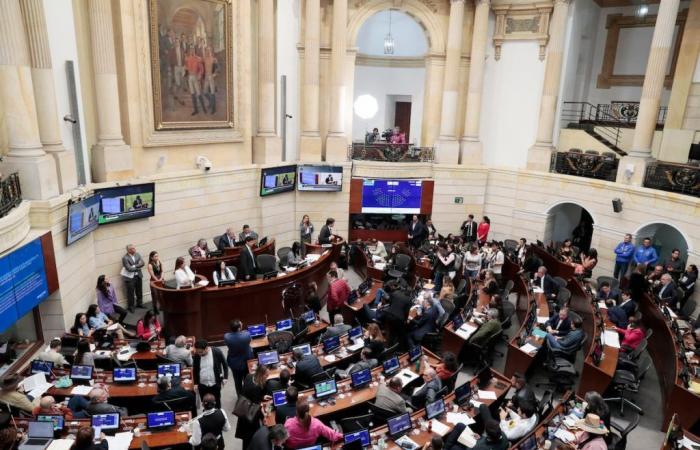Last week, the House of Representatives approved in the last debate the pension reform project promoted by the National Government. The House’s decision has been controversial, as it gave its approval to the text as it had previously been approved in the Senate plenary session. The reform has been questioned by the opposition and will surely be sued before the Constitutional Court for procedural defects and, specifically, for the lack of debate – avoidance, we lawyers say – in this last phase of the legislative process. For their part, the majorities that approved the new law argue that the opposition had used some strategies to delay the discussion in the legislature and that it was very likely that, if the debate had continued in the Chamber, the reform would not have reached be approved given the imminent end of the legislative period.
The problem that the Court will have to resolve is not so simple for two reasons. First, because it is clear that in a constitutional democracy with a bicameral congress, citizens have the expectation that there will be sufficient and appropriate public debate in both chambers on legislative initiatives that improve the processing of laws and incorporate the visions of our representatives. . Second, it is clear that the project was formally approved by the parliamentary majorities, who chose to support the text agreed upon in the Senate to avoid its collapse.
Is there a duty of minimum deliberation on the part of Congress? The issue is profound and has its technical complexities that I cannot address in detail in this column, but it is clear that the Court has not had a single position on the issue. On rare occasions, he has been very demanding of Congress and has asked legislators for an informed debate and a minimum of deliberation on momentous issues. A case along these lines was that of VAT in 2003, in which the Court declared the unconstitutionality of the article of a tax reform that extended the tax to various goods and services, including some basic necessities. As part of its argument for declaring the article unenforceable, the Court held that Congress adopted that decision without the minimum of public deliberation about the implications that this would have in light of the principles of progressivity and equity in tax matters. The recent case of the declaration of unconstitutionality of the Electoral Code, with its particularities, could also be framed in this group of decisions.
This rule, however, has not been the dominant position of the Constitutional Court on the issue. More than a duty, deliberation has been treated in multiple rulings as a right of congressmen. This means, according to the Court, that a law complies with the debate when the formal requirements are met, the rights of minorities to intervene in the parliamentary process are respected, a vote is taken and a decision is made on the proposed measure. . This is a rule consistent with the very definition of debate in the Congress regulations, which understands it as the submission for discussion of any proposition or project.
This was the position of the Court, for example, in the ruling of the first re-election of then-President Uribe. In that case, the Court analyzed the charge of lack of debate at various times during the processing of the Legislative Act. In the end, the Court dismissed the charge because it found that Congress adopted an implicit decision to terminate the debate for sufficient illustration, since there were no congressmen registered to participate in the debate or request the use of the floor when the discussion began. which led the presidencies to go to the vote. This, the Court has insisted, can occur quickly or quickly and this does not in itself constitute a defect in the legislative procedure.
According to the Court, debate is avoided when congressmen deliberately abstain from discussing and voting on an initiative, but this must be appreciated in the specific context of the discussion of each initiative. Congress has, in accordance with constitutional jurisprudence, relative creativity in the process of approving laws; It is not something extremely rigid and, although jurisprudence defends the voice of minorities in the legislative process, it is also deferential to the work of Congress and its boards of directors to prevent minority sectors from obstructing the approval of laws. It will then be up to the Court to judge whether the decision of the majorities to approve the House text to avoid the delay that would lead to non-approval is within the limits of the Constitution and the regulations of Congress. In other words, whether or not the House majorities crossed the line of creativity that the Court itself has drawn.
Newsletter
The analysis of current events and the best stories from Colombia, every week in your mailbox
RECEIVE THE
The absence of debate will probably not be the only charge that the reform will face. The last pension debate will be in the Constitutional Court.
Subscribe here to the EL PAÍS newsletter about Colombia and here to the channel on WhatsAppand receive all the information keys on current events in the country.


